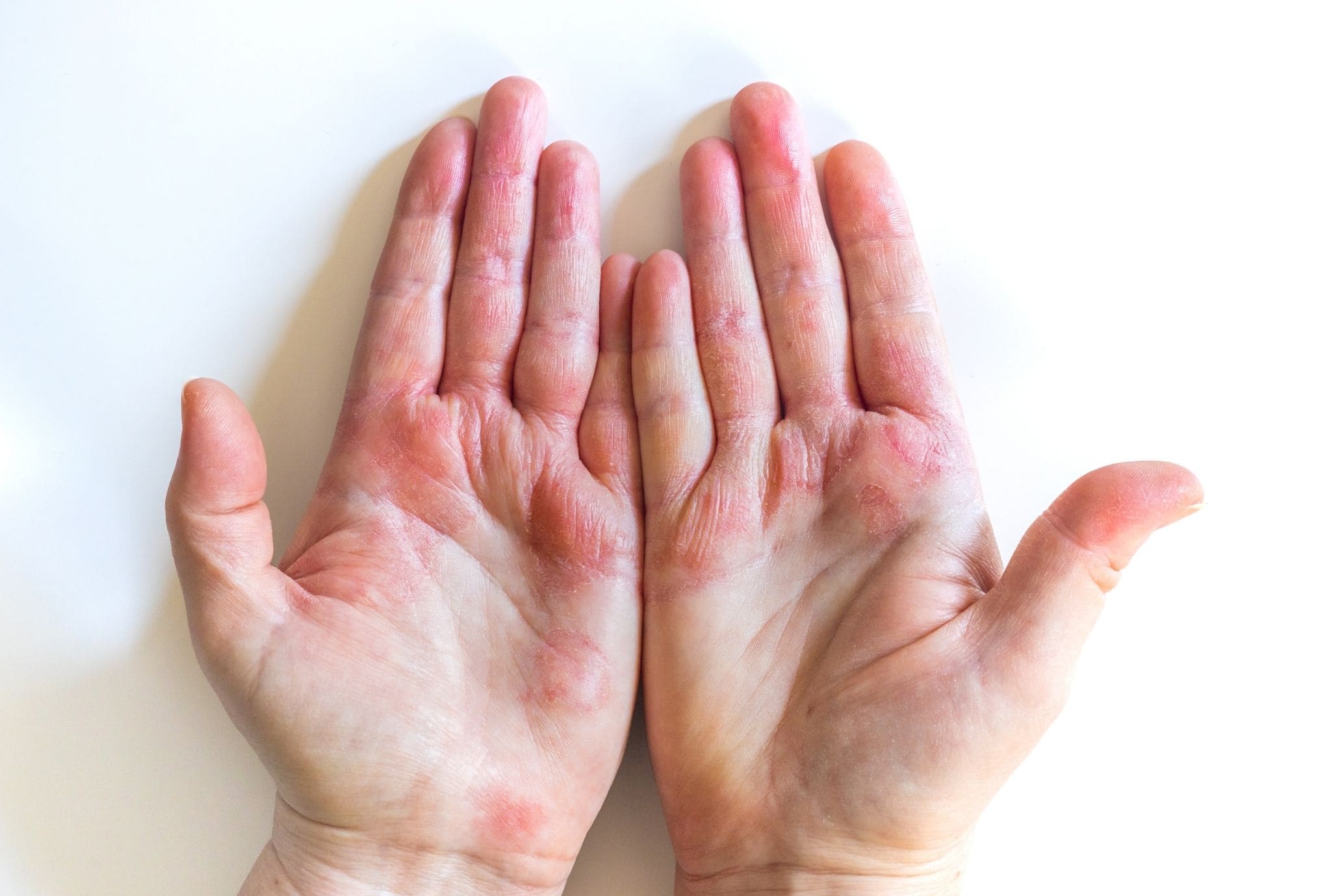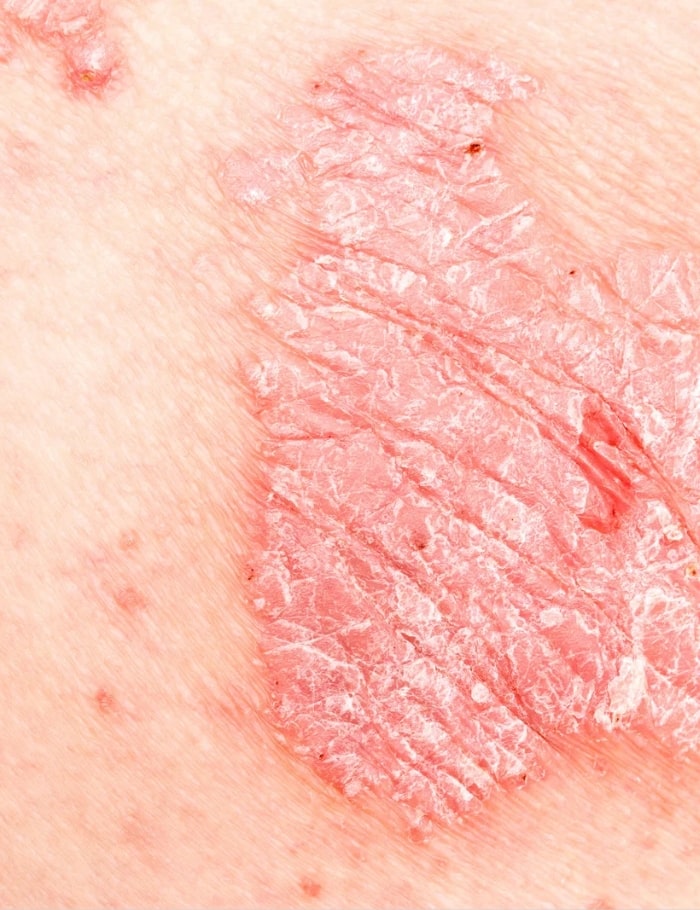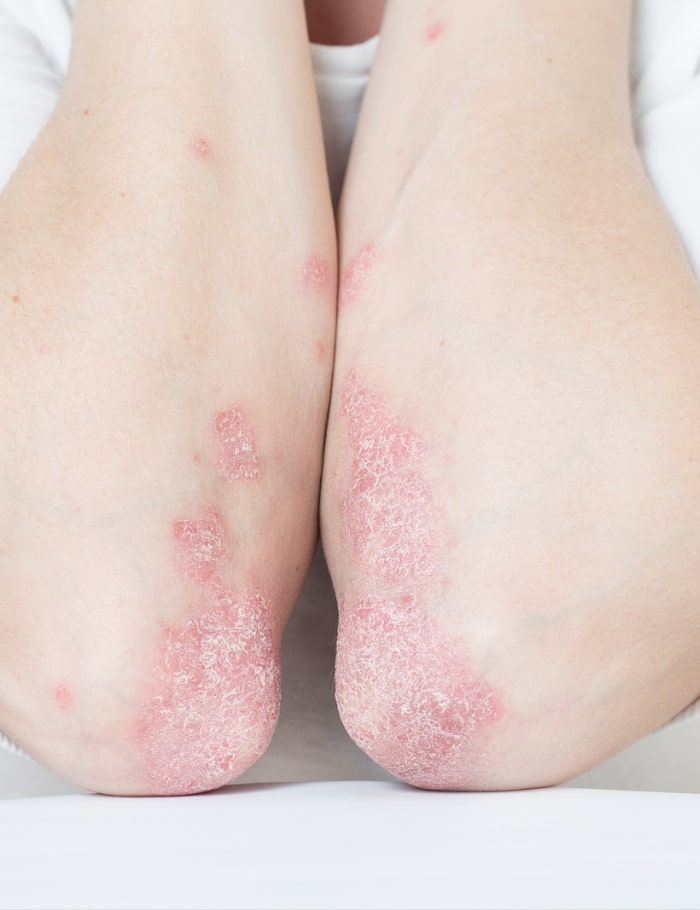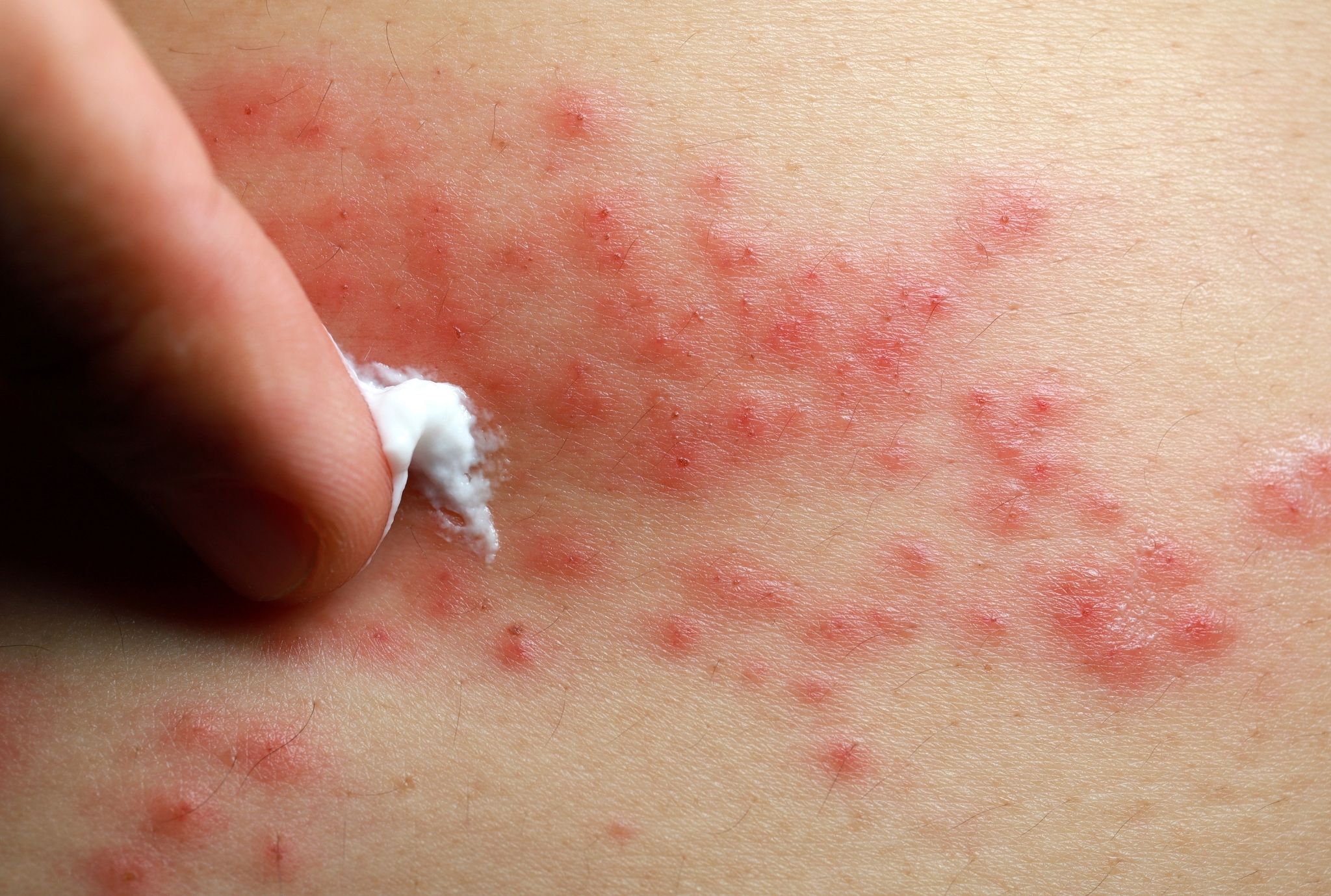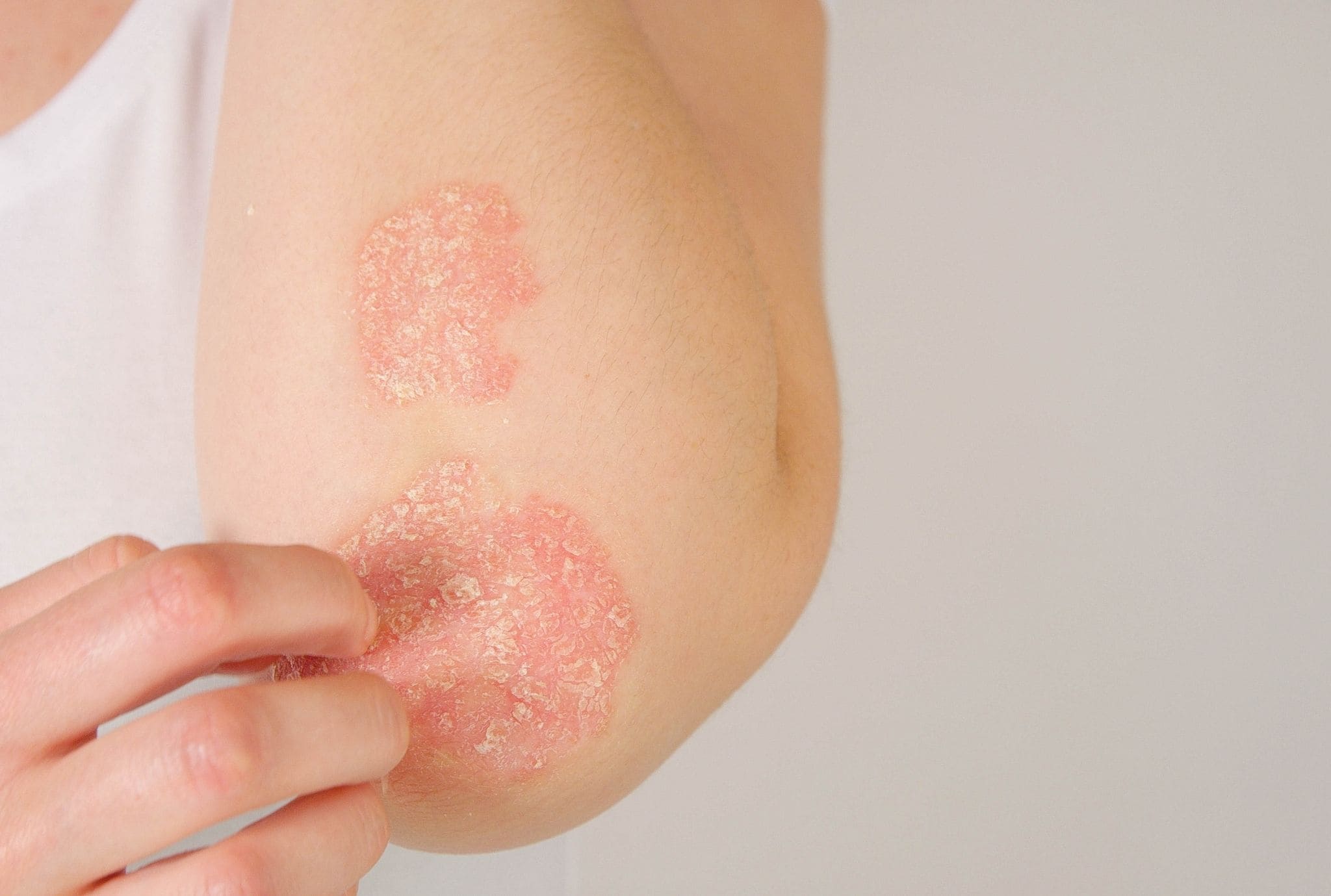Psoriasis
Psoriasis is a type of autoimmune disease in which the skin cells multiply upto 10x faster than normal.
It is considered a dry skin condition in which underlying cells that reach the skin surface die and begin to build up.
This accumulation of dead cells on the skin surface gives rise to red, raised patches covered with whitish or silvery scales.


